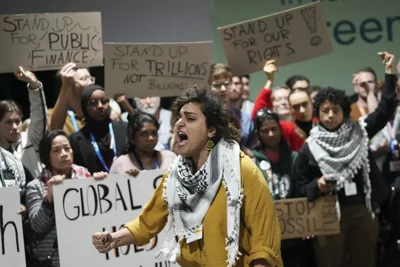The Australian government has been urged to redouble its efforts towards addressing the climate crisis after a major UN summit ended with a global finance agreement that developing countries criticised for not going far enough.
According to reports, the Cop29 talks in the Azerbaijan capital of Baku ended at 4am on Sunday with a consensus agreement that developing countries would be paid at least US$300bn (A$460bn) a year in global climate finance by 2035 to help them shift to a low-carbon economy and adapt to the impacts of extreme weather.
Wealthy nations, including Australia, agreed to “take the lead” in getting there. But they acknowledged developing countries actually needed at least US$1.3tn (A$2tn) a year.
The countries agreed to work together to find a way to achieve the higher target. It could include funding from private investors and potential new taxes on, for example, shipping and aviation.
Read also: CSOs urge developing countries to reject ‘bad deal’ at Cop29
The $1.3tn was based on a calculation by leading economists but many activists demanded more – as much as US$7tn a year – based on wealthy nations’ historic responsibility for rising damage caused by global heating.
The agreement cleared a final plenary session 34 hours after the scheduled close of the summit but some developing countries responded with fury, calling it not just a failure but a betrayal.
It may not have been accepted had the Azeri Cop29 president, Mukhtar Babayev, not gavelled it through before India could express its objection. India’s delegate, Chandni Raina, said the deal was an “optical illusion” and suggested the country would have blocked it given the chance.
Story was adapted from the Guardian.
